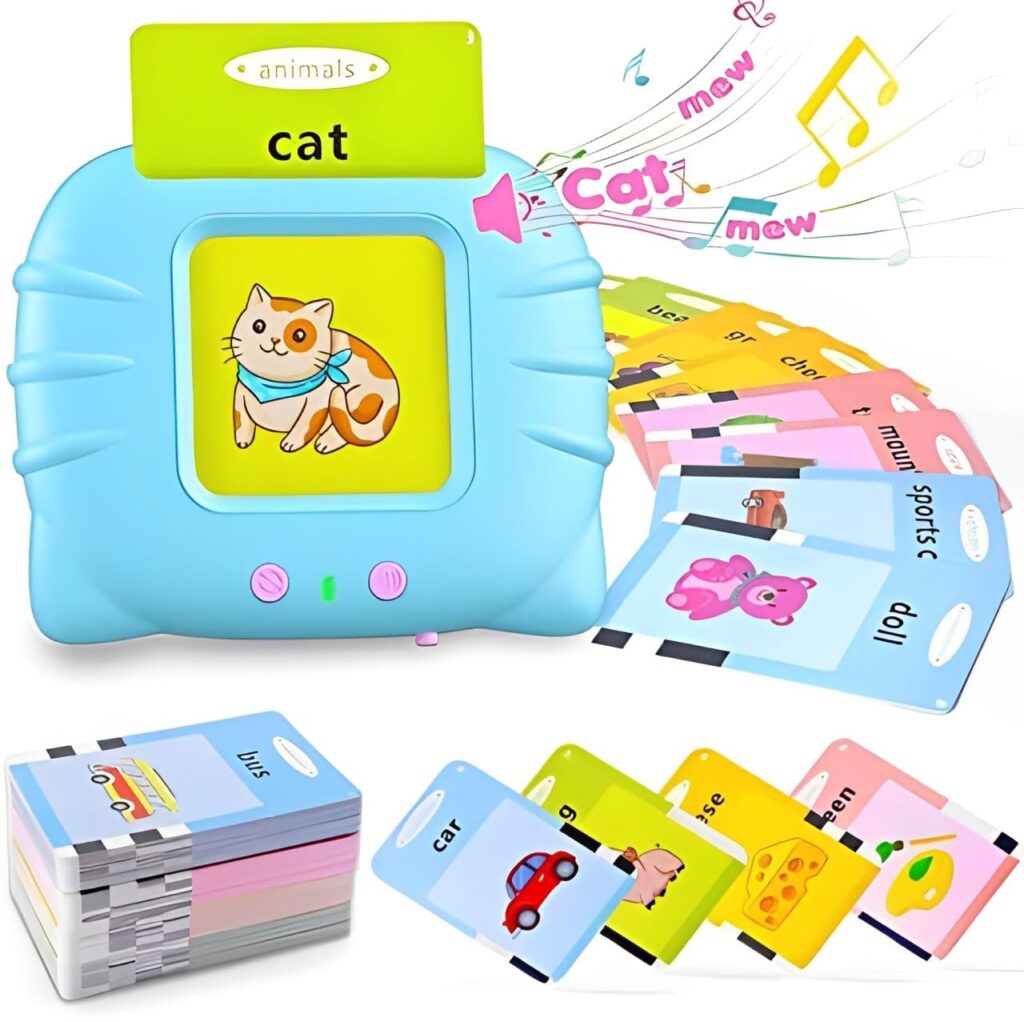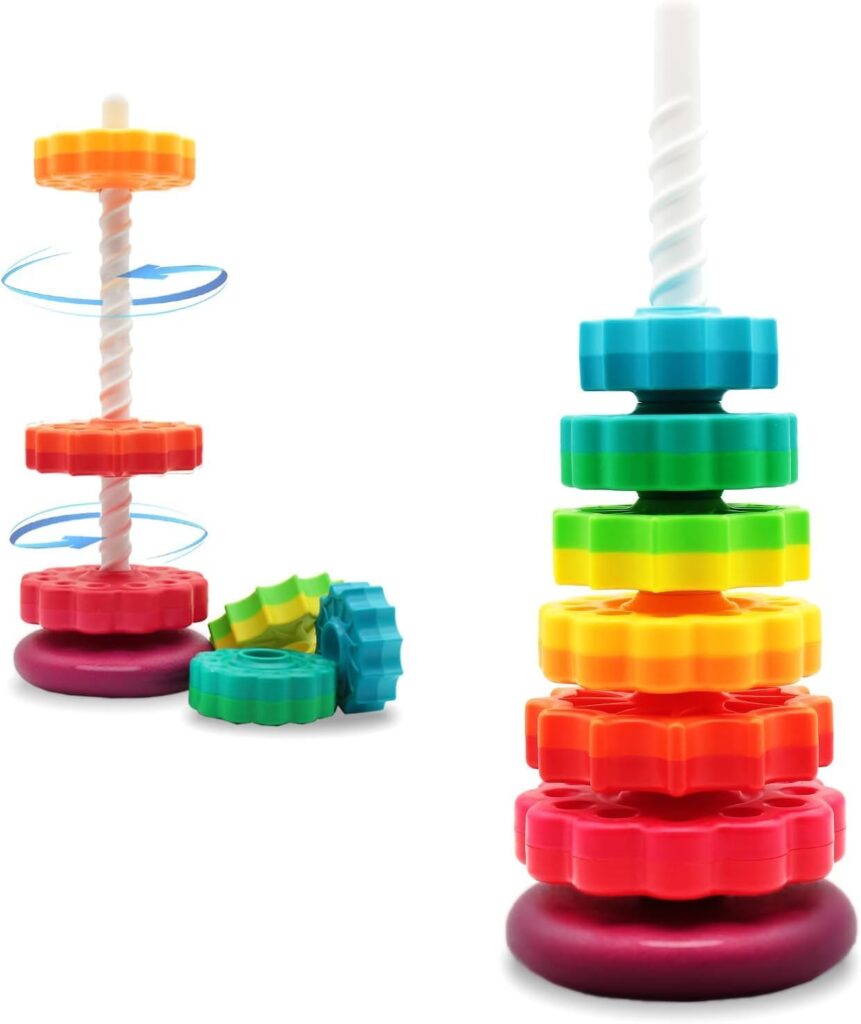Why eductional toys are very important for kids?
The Importance of c
In the formative years of childhood, play serves as the cornerstone of development, laying the groundwork for lifelong learning. Educational toys, designed with the intention of promoting cognitive, social, emotional, and physical development, play a crucial role in this aspect. This essay explores the importance of educational toys, delving into their multifaceted benefits and how they contribute to holistic child development.
Cognitive Development
Cognitive development refers to the processes involved in acquiring knowledge, problem-solving, and the ability to think abstractly. Educational toys, such as puzzles, building blocks, and memory games, stimulate cognitive skills by challenging children to think critically and solve problems.
- Problem-Solving Skills: Toys that require children to piece together puzzles or construct buildings encourage them to think critically and develop strategies for overcoming challenges. For instance, a simple jigsaw puzzle not only teaches shape recognition but also helps kids understand spatial relationships and improve their memory

- Language Skills: Many educational toys incorporate language development through storytelling, vocabulary expansion, and phonetic recognition. For example, interactive books or toys that involve singing and storytelling can enhance a child’s language skills, fostering a love for reading and communication.

- Mathematical Understanding: Toys like counting games and shape sorters introduce basic mathematical concepts such as counting, sorting, and recognizing patterns. These foundational skills are essential for later success in math and science.

Social and Emotional Development
Social and emotional development is critical for children as they learn to interact with others and understand their feelings. Educational toys can foster these skills in various ways:
- Cooperative Play: Many educational toys are designed for group activities, encouraging children to play together. This cooperative play helps them develop essential social skills such as sharing, negotiation, and empathy. For example, building sets can be used in group settings where children must collaborate to create a structure, fostering teamwork.

- Emotional Expression: Role-playing toys, such as dolls and action figures, allow children to explore different scenarios and emotions. This type of play helps children understand their own feelings and those of others, which is vital for emotional intelligence.

- Resilience and Patience: Educational toys that present challenges, such as games with levels of difficulty, teach children how to cope with failure and develop resilience. Learning that it’s okay to make mistakes and try again is a valuable lesson that will benefit them throughout their lives.

Physical Development
Physical development is another critical area influenced by educational toys. Fine and gross motor skills are essential for a child’s overall growth, and many toys target these skills effectively.
Fine Motor Skills: Toys such as building blocks, craft kits, and threading beads require precision and dexterity. These activities help children develop fine motor skills, which are essential for tasks like writing and self-care.
Gross Motor Skills: Toys that encourage movement, such as tricycles, balance bikes, or outdoor games, help children develop coordination and strength. Engaging in physical play also promotes overall health and well-being.
Encouraging Creativity and Imagination
One of the most significant advantages of educational toys is their ability to foster creativity and imagination. Creative play is fundamental for cognitive and emotional growth, allowing children to express themselves freely.
Open-Ended Play: Toys that encourage open-ended play, such as art supplies, building blocks, or musical instruments, allow children to explore their creativity without limits. This type of play is essential for developing problem-solving skills and innovative thinking.
Storytelling and Role Play: Educational toys often come in the form of characters or scenarios that encourage storytelling. This not only aids in language development but also helps children make sense of the world around them, enhancing their imaginative capabilities.
Lifelong Learning
Investing in educational toys early on instills a love for learning that can last a lifetime. By creating a positive and engaging environment for learning through play, children are more likely to develop a curious mindset.
Encouraging Inquiry: Toys that stimulate curiosity, such as science kits or exploration sets, motivate children to ask questions and seek answers. This inquisitive nature is vital for academic success and personal growth.
Foundational Skills for Future Learning: The skills and knowledge acquired through play with educational toys serve as a foundation for future academic endeavors. For instance, early exposure to STEM (science, technology, engineering, and mathematics) concepts through toys can spark an interest in these fields.
Parental Involvement
Educational toys also provide an opportunity for parents to engage with their children, which is essential for development. Active participation from parents not only enhances the learning experience but also strengthens the parent-child bond.
Quality Time: Playing together with educational toys allows parents to spend quality time with their children, fostering stronger relationships. This interaction can lead to better communication and emotional support.
Guided Learning: Parents can use educational toys as tools to guide their children’s learning experiences. By introducing new concepts or encouraging specific skills, parents can help their children maximize the benefits of play.

Conclusion
In conclusion, educational toys are much more than mere playthings; they are vital tools that contribute significantly to a child’s development. By promoting cognitive, social, emotional, and physical growth, these toys help lay the groundwork for lifelong learning. The benefits extend beyond the individual child, impacting families and communities as children learn to interact, express, and innovate. Investing in educational toys is investing in a brighter future for children, equipping them with the skills and knowledge they need to navigate the complexities of life. As such, parents, educators, and caregivers should prioritize educational toys as an integral part of children’s play and learning experiences.

